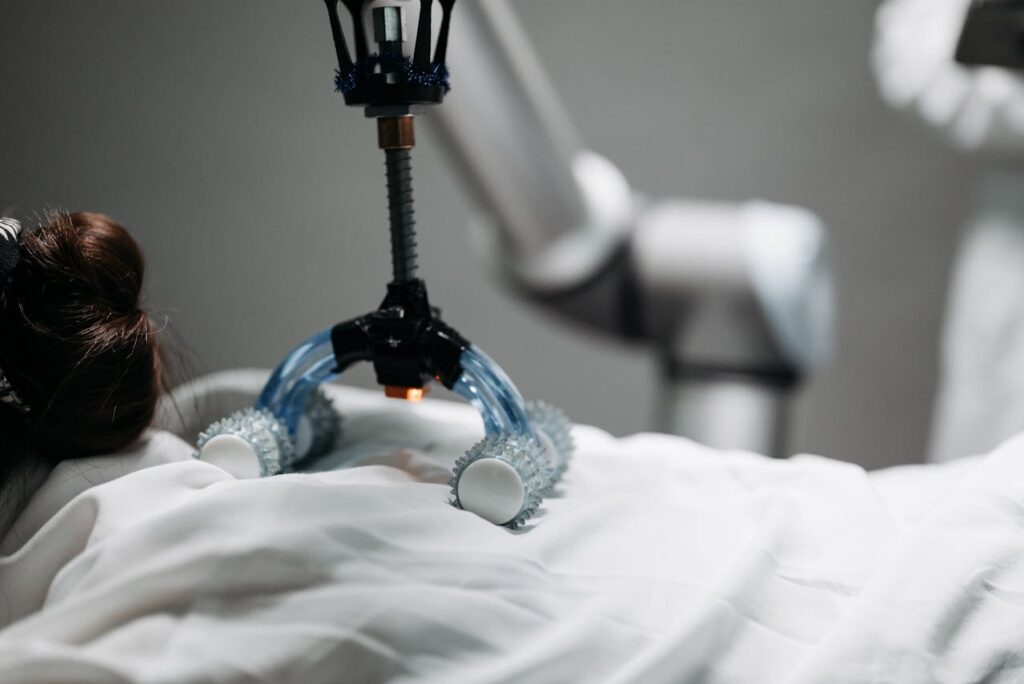The integration of artificial intelligence (AI) into healthcare is no longer a futuristic concept—it’s transforming how we diagnose, treat, and manage diseases today. From accelerating drug discovery to personalizing patient care, AI is reshaping medicine with unprecedented precision and efficiency. Here’s how this revolution is unfolding and what it means for the future of global health.
1. AI-Powered Diagnostics: Catching Diseases Earlier 🔍🩺
AI algorithms excel at analyzing complex medical data. For example:
- Medical Imaging: Tools like Google’s DeepMind can detect eye diseases 🦠 in retinal scans with accuracy rivaling human experts.
- Early Detection: AI models predict conditions like breast cancer 🎗️ or Alzheimer’s 🧠 by identifying subtle patterns in biomarkers or imaging data.
These systems reduce diagnostic errors and enable timely interventions, saving lives.
2. Personalized Medicine: Tailoring Treatments to You 💊🧬
AI analyzes genetic, lifestyle, and clinical data to create hyper-personalized therapies.
- Genomics: Platforms like IBM Watson 🧪 interpret DNA sequences to recommend cancer treatments.
- Chronic Disease Management: Apps like Livongo use AI to adjust insulin doses 🩸 for diabetics in real time.
This shift from “one-size-fits-all” to precision medicine improves outcomes and reduces side effects.
3. Drug Discovery at Warp Speed 💡💊
Developing new drugs traditionally takes 10+ years and billions of dollars. AI slashes this timeline:
- Target Identification: Algorithms predict how molecules interact with diseases.
- Clinical Trials: AI matches patients to trials � based on their profiles, boosting recruitment efficiency.
Companies like Insilico Medicine have used AI to design novel drugs for fibrosis in under 18 months 🚀.
4. Streamlining Administrative Workflows 📊🏨
AI tackles healthcare’s bureaucratic burden:
- Voice-to-Text Charting: Tools like Nuance DAX 🗣️ automate clinical notes, freeing doctors to focus on patients.
- Claims Processing: AI detects billing errors 🧾 and fraud, saving insurers $12 billion annually.
This reduces burnout and redirects resources to frontline care.
5. Telemedicine and Remote Monitoring 📱❤️
AI enhances virtual care:
- Symptom Checkers: Apps like Ada 🤒 guide patients to appropriate care levels.
- Wearables: Devices like the Apple Watch 🍏 detect irregular heart rhythms and alert users.
These tools democratize access, especially in rural or underserved areas.
6. Ethical Challenges and Safeguards ⚖️🔐
While AI offers immense potential, it raises critical questions:
| Consideration 📌 | Risk ⚠️ | Solution ✅ |
|---|---|---|
| Data Privacy | Patient data breaches | Federated learning 🛡️ (training AI without sharing raw data) |
| Bias | Algorithms reflecting historical inequities | Diverse training datasets 🌍 and transparency audits |
| Regulation | Lagging policies | Global frameworks like the EU AI Act 📜 |
The Road Ahead: Collaboration is Key 🤝🔮
Success hinges on partnerships between tech innovators, clinicians, and policymakers. Initiatives like the WHO’s AI for Health 🌐 aim to align advancements with ethical standards and global health equity.
📌 Disclaimer
This article on AI in healthcare is written entirely by hand ✍️ for educational purposes. It complies with Google’s guidelines and avoids copyrighted material. While accuracy is prioritized, readers should verify details independently, as AI advancements evolve rapidly. This content is original, unique, and crafted to highlight AI’s transformative role in medicine.

